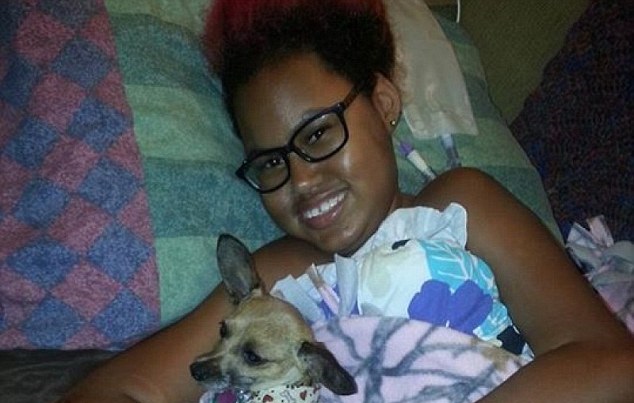A 14-year-old teen with spinal muscular atrophy needs intervention and support, not death, a group of disability rights advocates said this week.
The Wisconsin teen, Jerika Bolen, came into the national spotlight in July when the media first covered her plan to turn off her ventilator and end her life. Jerika has type 2 spinal muscular atrophy, a disease for which there currently is no cure. Those who have it often die in their teen years.
The young teen has had dozens of surgeries and says she is in pain. But by all accounts, the young teen has tried her best to live a full, happy life with her family. Her local newspaper, the Post-Crescent, described Jerika this way, “But for her power wheelchair, Jerika Bolen is every bit an active 14-year-old girl – a hopeless romantic with shiny purple hair, a love of alternative music and an addiction to Facebook.”
Bolen’s mother supports her decision to end her life, but disability rights advocates are troubled by the situation and want the child protection services to get involved, the Associated Press reports.
Here’s more from the report:
Disabled Parents Rights, along with several other groups, have asked Outagamie County child protection services to step in, according to Carrie Ann Lucas, executive director of the Windsor, Colorado-based organization.
CLICK LIKE IF YOU’RE PRO-LIFE!
Lucas said Jerika needs intervention, not assistance in ending her life.
“We’re talking about a 14-year-old child. It’s a difficult time in most people’s lives. She has her whole life in front of her. She should be going to college. She should be having a career,” Lucas said Wednesday.
Outagamie County’s Children, Youth and Families Division declined comment on the organizations’ request, citing privacy in child welfare cases.
Lucas said her group has no legal standing to stop Jerika and that she had not heard from child protection services.
According to the Washington Post, Jerika’s condition and her pain are getting worse. She eventually could lose complete control of her hands and face, and her pain could get worse. The 14-year-old currently is receiving hospice care, according to the report.
When Jen Bolen listened to her daughter’s plan to switch off her ventilator and die, the mother suggested that Jerika try more pain medicine instead.
“No, Mom. I’m serious,” Jerika told her mother. “I’m actually done.”
Jen said she has felt numb, angry and deeply sad since her daughter announced the decision. While she has suggested alternatives to her young daughter, the mother said the decision is ultimately her daughter’s.
“I know she’s only 14, but she’s old enough to decide,” Jen said. “It’s her body and it’s her pain.”
Jerika said she also felt sad about dying at first, but now she is dreaming of “going to be with God. I’m going to be free. I have been realizing I’m going to get to walk and not have this pain anymore and not have to, like, live this really crappy life.”
Jerika said she had her last surgery to appease her family, but her constant medical care is “tearing them apart” and it’s “making them really sad that I’m going on hospice.” She said she does not have a good “quality of life.”
There are a number of troubling factors in the teen’s story.
One concern is that Jerika is only 14 years old. According to the report, Jerika has a counselor who discussed the decision with her as well as her mom. Still, it is questionable whether the young teen is mature enough to fully understand the irreversible decision that she is making.
Jerika’s comments also seem to indicate that her decision could have been influenced by fears of being a burden to her family.
“I sat myself down and I thought, ‘Jerika, am I here for me or am I here for my family? I can’t even do anything besides lie in bed because I’m so sore,’” she said during one interview.
Fear of being a burden is common among people who are sick, elderly, depressed or disabled; and these fears can lead vulnerable people to consider ending their lives prematurely. Dr. Peter Saunders explained: “In Washington in 2013, 61% of people opting for assisted suicide give the fear of being a burden to family, relatives and caregivers as a key reason. 13% cited ‘financial implications of treatment’. In the same year in Oregon the equivalent figures were 49% and 6%.”
People who are suffering physically, emotionally or psychologically should be relieved from their pain and suffering to the best of society’s abilities. One of the ways society can do that is to reassure them that their lives still matter and are still worth protecting, no matter how short their life is or how much of a burden their care may be.








